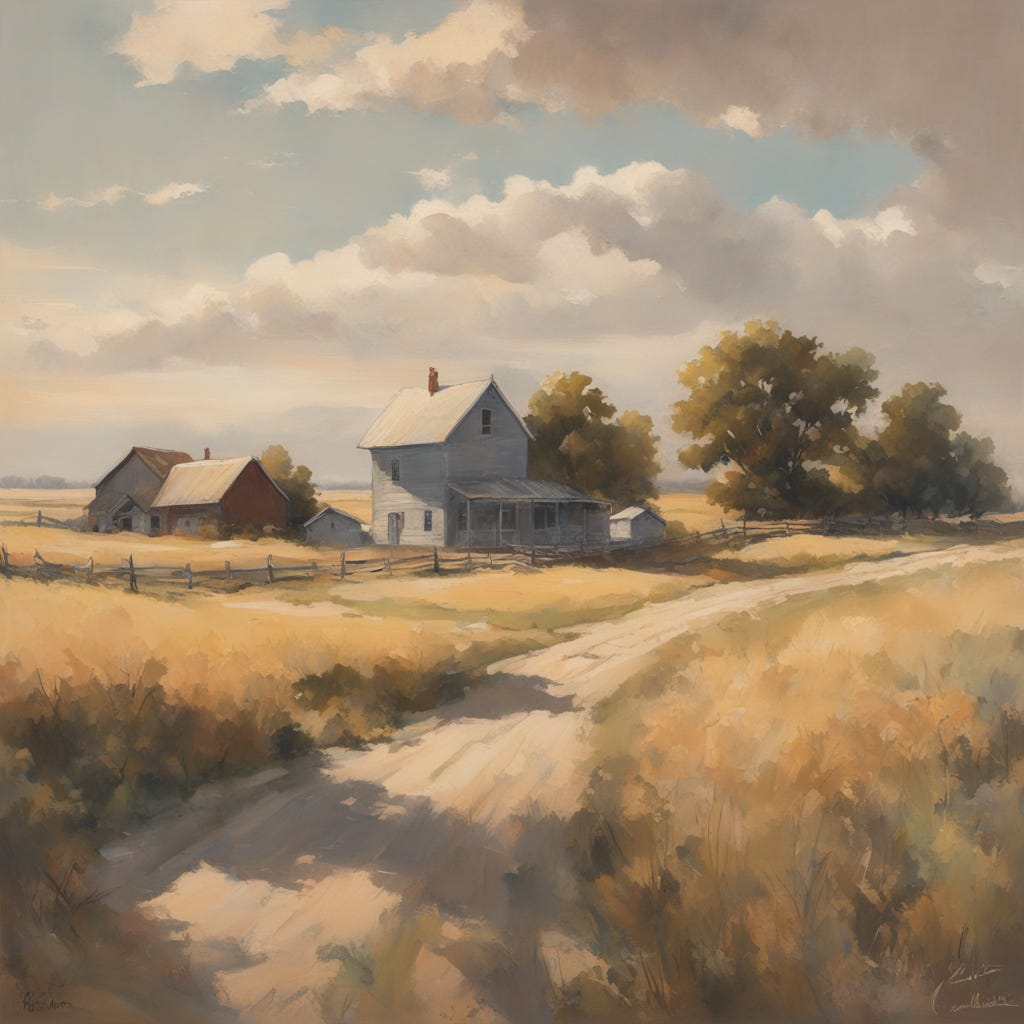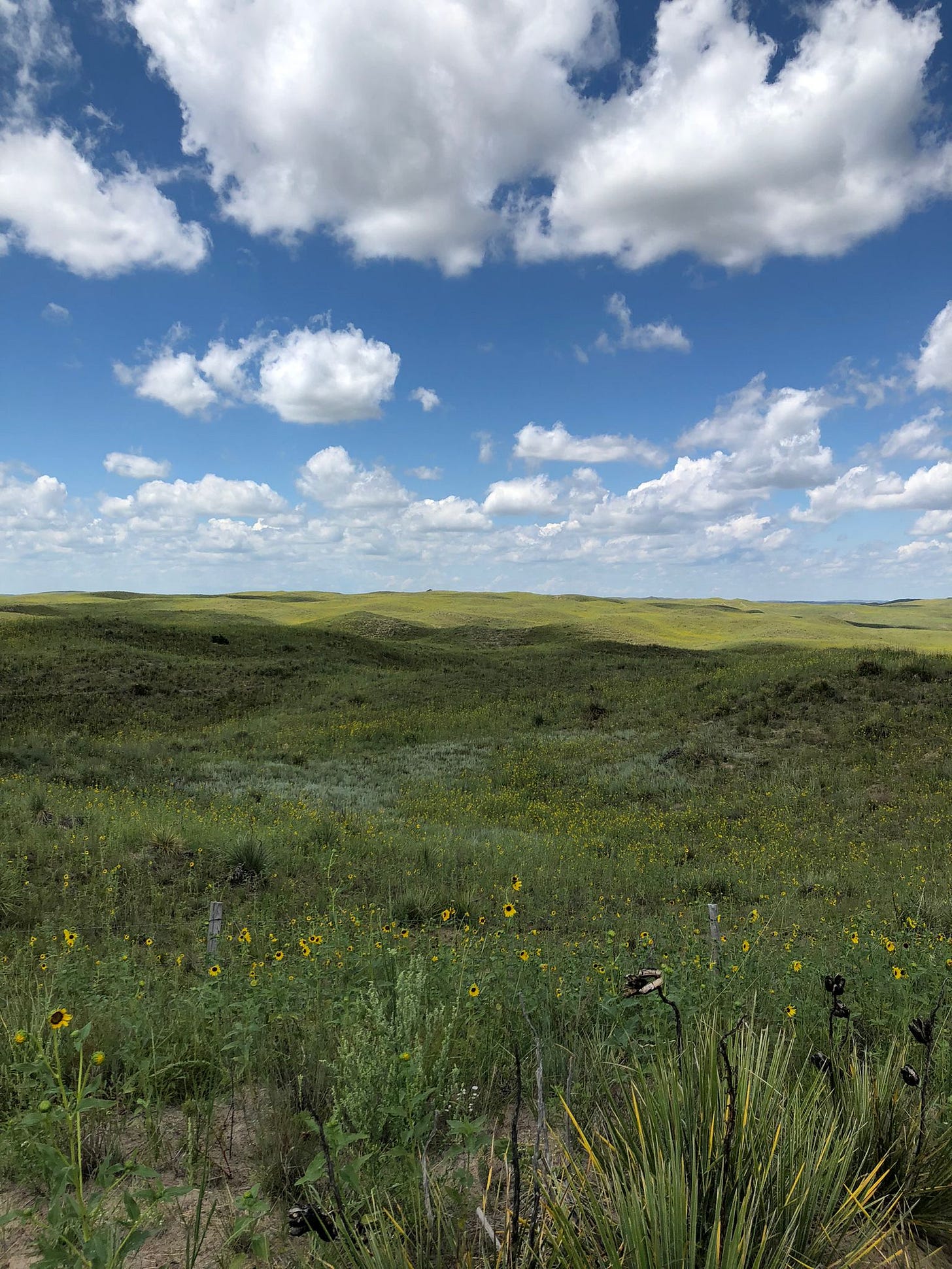Rural Life to Rural Futures
A Journey by Andrew Husa, Chair at Rural Geography Specialty Group (RGSG AAG)
Although I grew up on a farm outside of a small town, my journey to becoming a rural geographer took longer than one may expect. When I began my coursework at the University of Nebraska-Lincoln, I did not recognize the research value of a place like my hometown of Liberty, NE, a village with a 2020 census count of 37 people. I grew up surrounded by people who would leave after high school; to me, rural Nebraska was just a place that people left.
In my academic career, as a full-time lecturer at UNL, I have worked with several students who feel similar to myself growing up. These students want to write more about their experiences growing up in rural areas but often feel dissuaded because they don’t see the value in their hometowns. I was fortunate to have had a professor from rural Nebraska who fostered my love of the rural, who encouraged me to write about my rural identity and attachment to my hometown. This is an encouragement I continue to pass on to my students, but how many other educators do the same? Even at the university level, it seems as though only a small number of undergraduate professors or graduate advisors encourage their students to explore rural-related topics.
The Rural Geography Specialty Group can grow rural geography as a sub-discipline by sharing an enthusiasm for the rural seemingly lacking in academia.
My hometown, like many rural communities, is considered an empty place in the American geographical imagination, another dot on the map, like many others, with no special character. These rural communities are seen as “Point A” on the map for those who grew up there before moving away, with leaving apparently a prerequisite for leading a successful life. Those who have stayed and continue to stay, are often considered negatively, as “left behind” or “stuck.” Geographical immobility is equated with social immobility; urbanormativity posits urban society as normal and rural society as deviant.
These misconceptions often present rural-related research as unfruitful or unworthy of investigation beyond the causes and consequences of out-migration. How can we grow our sub-discipline when so much research focuses on the decline of rural areas?
Rural misconceptions must be questioned and replaced with proper representations. Negative stereotypes associated with rural stayers can easily be disproven when immobility is viewed as an active process, as the product of a decision made based on one’s cultural, familial, and moral values, and socio-economic opportunity. The misinterpretation of the rural population as homogeneous can be discounted by examining the diverse experiences of those who call these places home. The idea of the rural as an empty place can be dismissed when focus is placed on the significance of place attachment, as well as the dedicated and enthusiastic residents who strive to increase their hometown’s ability to offer diverse employment opportunities, strong schools, accessible health care, affordable housing, and other incentives for sustaining their current populations and attracting new residents. By shifting the paradigm of rural research to a focus on the myriad of reasons people choose to live, work, and play in rural areas, we present a variety of research foci that excite students and are worthy of further investigation.
I joined the Rural Geography Specialty Group initially as a Graduate Student Representative, and later as the Great Plains/Rocky Mountain Division Representative, because I wanted to meet and work with those who recognize the value of rural research, those who seek to correct misinterpretations of the rural, those who give voices to the mis- and/or underrepresented populations of rural areas, and those who promote future rural studies.
With the efforts of our dedicated current and future members, as well as the work of our Justice, Equity, Diversity, and Inclusion group, I am so excited to keep participating in our specialty group as Chair as we continue to encourage new voices and new directions in rural geography. Together, we can foster an inclusive and enthusiastic environment to study all things rural.
— Andrew Husa, Chair
Author’s Bio







As someone born in Germany, who lived a peripatetic military brat and adult life, living in cities like Paris, Nuremberg, Stuttgart, Frankfurt, Denver, San Antonio; smaller cities like Columbia Mo, Lawton, Oklahoma, Barstow, CA - I chose, at what statistically will be the last third of my life, to consciously live rural, raising Angora goats on an 80 acre farm in unincorporated land in eastern Kansas.
There's a story there, too, though I suspect it will be hard with current lenses to see it as other than "white flight" even though it's really seeking a slower pace and quiet. Flight from urban and suburban in general.
I can't see another house from my house - the closest being a mile away on a gravel road across a wooded valley.
But I live in an area otherwise as you describe for yourself - our kids graduate high school and go away, and very few come back. I certainly did that (though I graduated from high school in Columbia, MO) - I went away, and young John never would have imagined Auld John would end up a farmer.